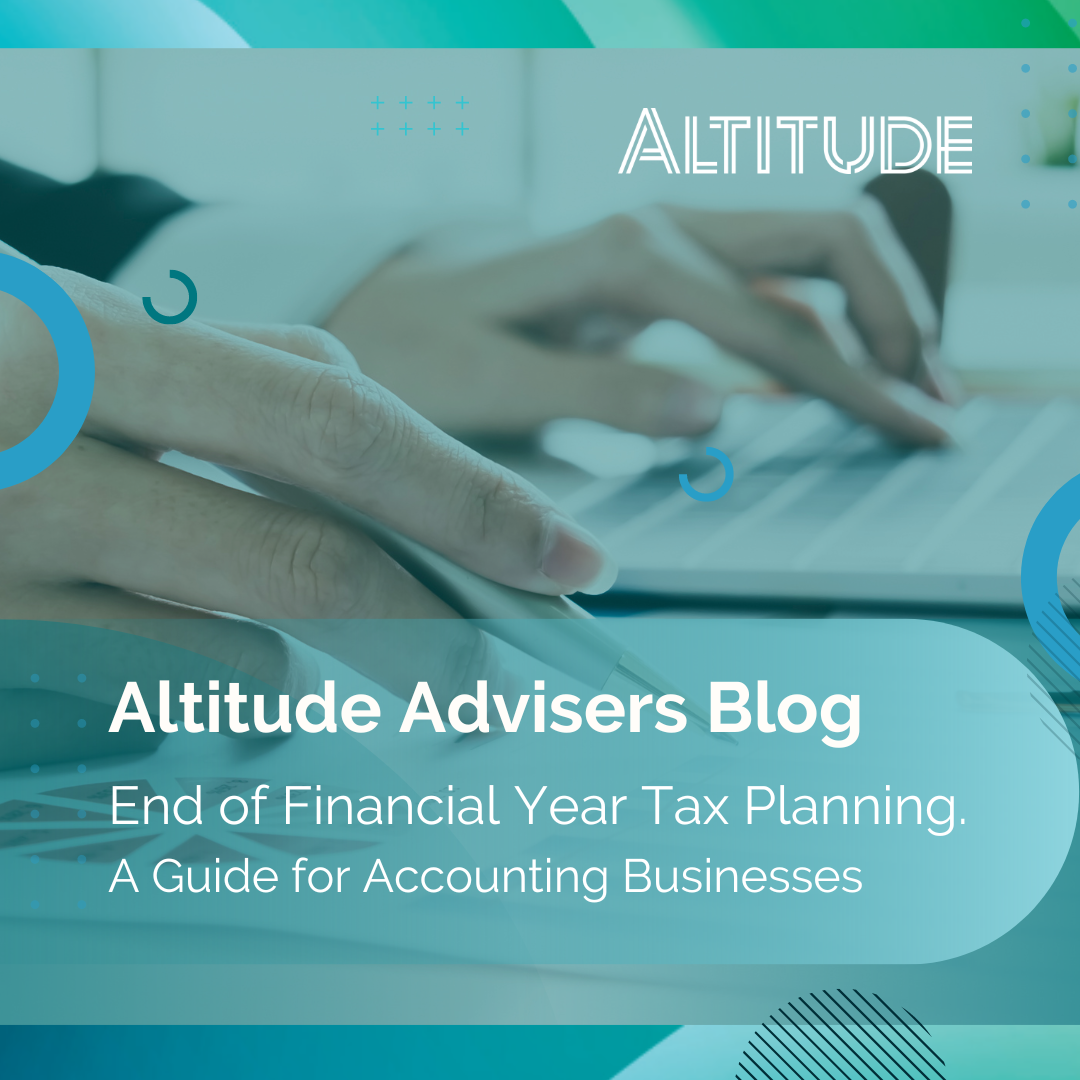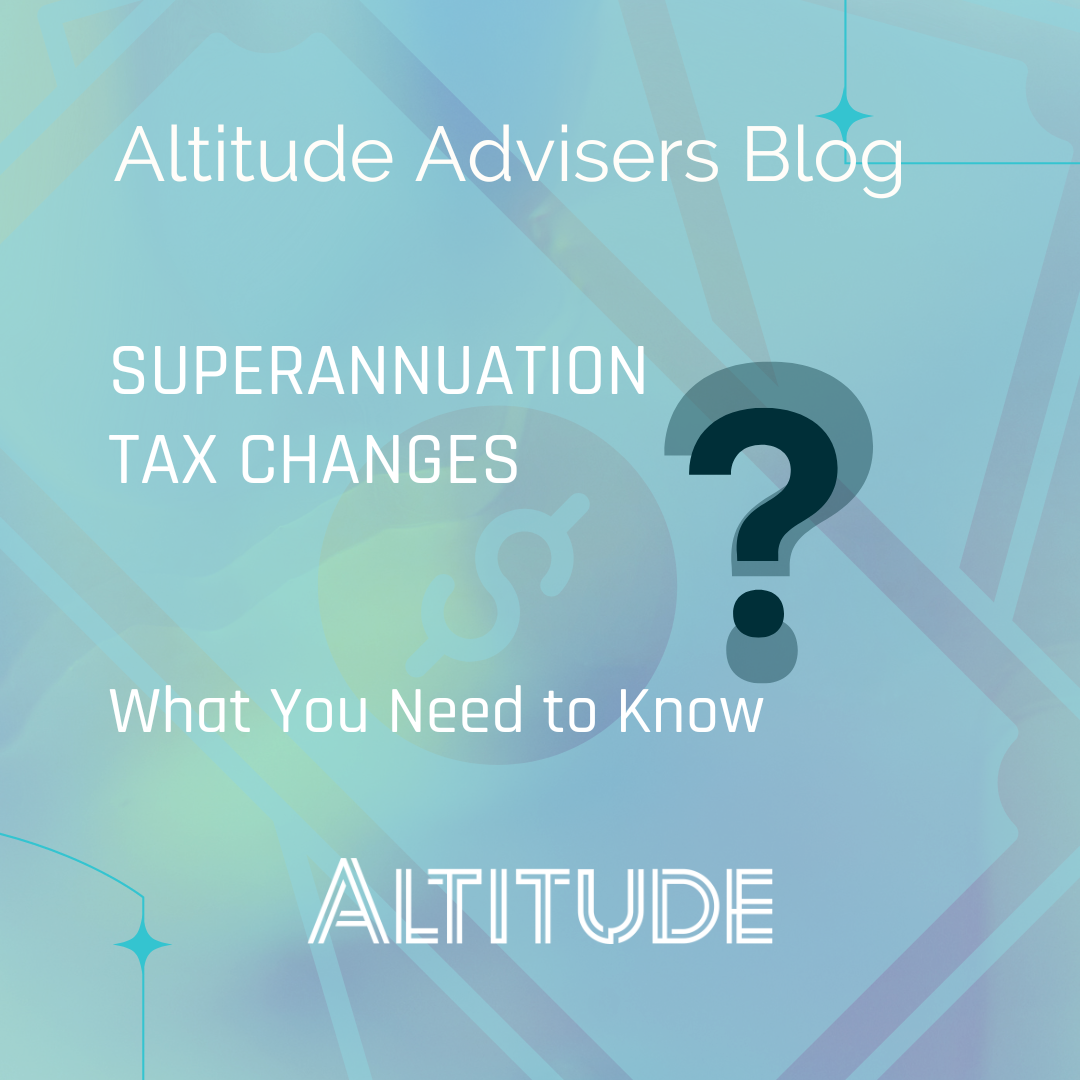
As a business owner, tax planning should be a year-round activity, but the end of financial year (EOFY) is an especially important time to review your financial position and make strategic decisions to optimize your tax liabilities.
At Altitude Advisers, our team of experienced accountants are here to help you navigate the complexities of tax planning, ensuring you’re making the most of the available tax benefits and deductions.
Below are six key areas to focus on when preparing for the EOFY:
Claim all eligible deductions:
Deductions are a key way to reduce your taxable income, but it’s important to ensure you’re only claiming expenses that are actually deductible. Some common deductions for business owners include expenses related to home office use, motor vehicle expenses, travel expenses, and depreciation of assets. Be sure to keep accurate records of all expenses and speak to your accountant about any uncertainties or queries you have.
On 30 June 2023, the temporary full expensing rules will cease. You can still claim a full write-off for eligible assets as long as the assets are first used or installed before 30 June 2023. From 1 July 2023, we expect a threshold (pre covid this was $30,000) to be reintroduced that will limit the immediate write off available.
Prepare for upcoming changes:
The end of financial year is also a good time to review any upcoming changes that may affect your business, such as new tax laws or regulatory changes. Being proactive in preparing for these changes can help you stay ahead of the curve and minimize any negative impacts on your business.
Legislation passed in December 2022 allows businesses a full Fringe Benefit Tax (FBT) exemption for the purchase and running costs of an eligible electric vehicles under the $84,916 luxury car tax limit for fuel efficient vehicles. This includes battery, plug-in hybrid and hydrogen fuel cell electric vehicles.
The Federal Budget on 9 May 2023 will provide details of any final changes to rules businesses need to know for planning.
Maximise superannuation contributions:
Contributing to your superannuation fund can not only help you build wealth for retirement, but it can also provide immediate tax benefits. Depending on your circumstances, you may be eligible to claim a tax deduction for personal contributions you make to your super fund, or your business may be able to make deductible contributions on your behalf. Speaking to your Altitude Accounting and Financial Advisers at year end will ensure you determine the best superannuation strategy for your business and personal financial goals.
For 30 June 2023, the maximum concessional super contribution cap is $27,500. There are rules that allow bring forward or past year “unused cap” deductions that may mean you can contribute and claim more than the cap.
Review your stock and inventory levels:
If you operate a business that deals in stock or inventory, it’s important to review your levels and make any necessary adjustments before the end of the financial year. This can include writing off any obsolete or damaged stock, ensuring stock levels are accurately recorded, and making any necessary provisions for stock on hand. Small businesses can avoid doing a formal stocktake if the balance of their stock has not changed by more than $5,000 from last year
Prepare for upcoming changes:
The end of financial year is also a good time to review any upcoming changes that may affect your business, such as new tax laws or regulatory changes. Being proactive in preparing for these changes can help you stay ahead of the curve and minimize any negative impacts on your business.
Legislation passed in December 2022 allows businesses a full Fringe Benefit Tax (FBT) exemption for the purchase and running costs of an eligible electric vehicles under the $84,916 luxury car tax limit for fuel efficient vehicles. This includes battery, plug-in hybrid and hydrogen fuel cell electric vehicles.
The Federal Budget on 9 May 2023 will provide details of any final changes to rules businesses need to know for planning.
Review your business structure:
The end of financial year is a good time to review your business structure and make sure it’s still the most suitable for your needs. For example, if you’re currently operating as a sole trader, it might be worth considering whether it’s time to set up a company or trust structure. Alternatively, if you already have a company or trust, you may want to review whether it’s still the most appropriate structure for your business goals and future plans.
Seek professional advice:
Finally, the most important thing you can do when preparing for the EOFY is to seek professional advice. A qualified accountant can help you navigate the complexities of tax planning and provide tailored advice to ensure you’re making the most of the available benefits and deductions. At Altitude Advisers, our team of experienced accountants is here to help you achieve your financial goals and reach new heights in your business.
By focusing on these six key areas when preparing for the end of financial year, you can ensure that your business is well-positioned for success in the year ahead. Remember, tax planning is not just about compliance – it’s about making strategic decisions to optimize your financial position and achieve your business and personal goals.
Contact Altitude Advisers today to learn more about how we can support your business with our integrated suite of accounting and financial advisory services.


